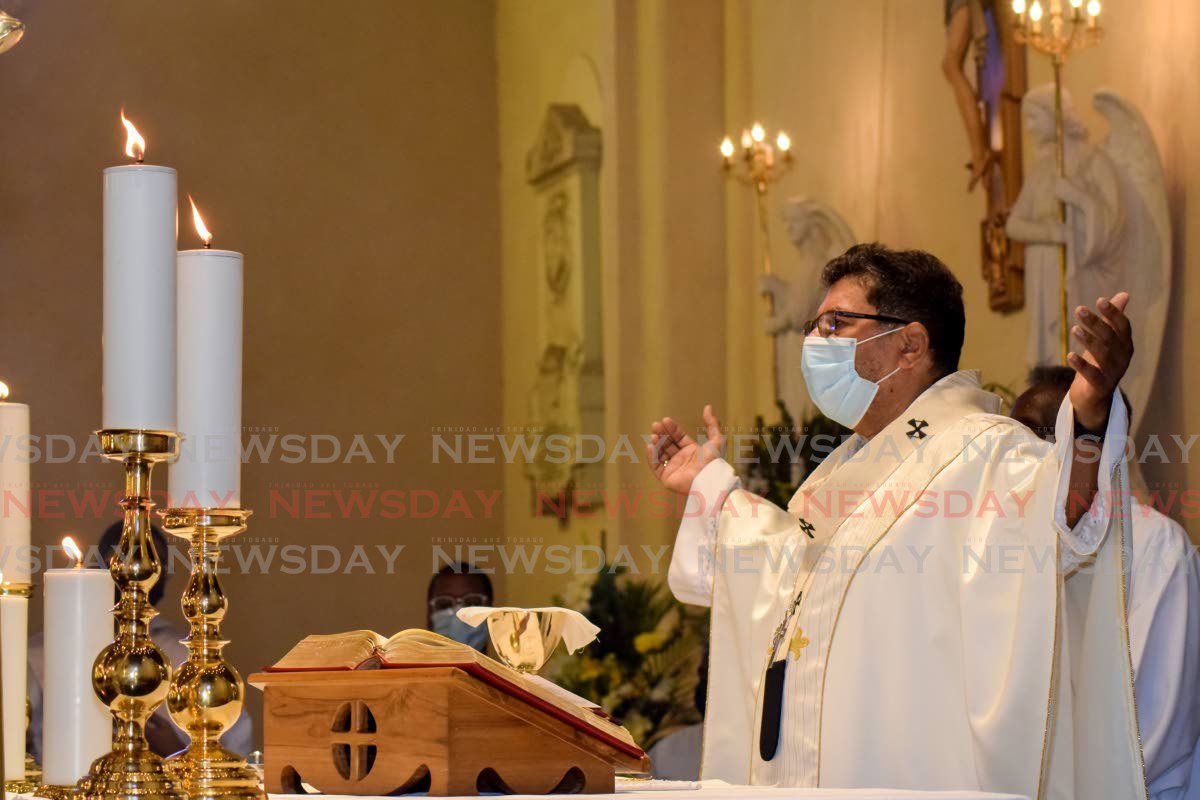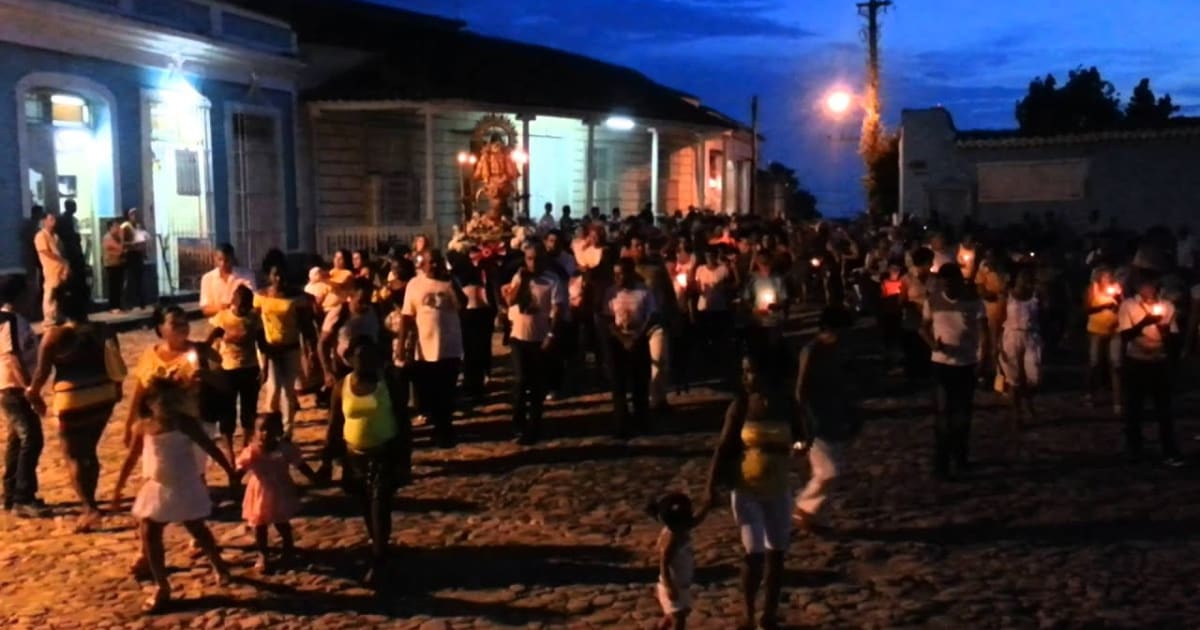Easter in Trinidad: A Celebration of Faith, Family, and Tradition
Related Articles: Easter in Trinidad: A Celebration of Faith, Family, and Tradition
Introduction
With enthusiasm, let’s navigate through the intriguing topic related to Easter in Trinidad: A Celebration of Faith, Family, and Tradition. Let’s weave interesting information and offer fresh perspectives to the readers.
Table of Content
Easter in Trinidad: A Celebration of Faith, Family, and Tradition

Easter in Trinidad and Tobago, a vibrant nation steeped in rich cultural heritage, is a time of profound religious observance, joyous family gatherings, and the enduring spirit of resilience. While the exact date of Easter Sunday varies each year, it typically falls in late March or early April, marking the culmination of Lent, a period of fasting and reflection.
Religious Significance:
Easter is a pivotal event in the Christian calendar, commemorating the resurrection of Jesus Christ from the dead. For many Trinidadians, it is a time for deep spiritual reflection and renewal. Churches across the island are abuzz with activity, hosting special services, processions, and sermons that emphasize the themes of hope, redemption, and new beginnings. The solemnity of Good Friday, marking the crucifixion of Christ, is observed with somber reflection, while Easter Sunday is a joyous celebration of his triumph over death.
Cultural Celebrations:
Beyond the religious observances, Easter in Trinidad is a vibrant cultural celebration, infused with the island’s unique blend of African, Indian, and European influences. The festive spirit is evident in the numerous activities that take place throughout the week leading up to Easter Sunday.
Traditional Foods and Drinks:
Easter feasts are a significant part of the celebrations, featuring a delectable array of traditional dishes. "Pastelles," savory cornmeal dumplings filled with meat and spices, are a staple, often served alongside "black cake," a rich, dark fruitcake traditionally made with rum and spices. Other popular delicacies include "fish cakes," "coo-coo," a cornmeal porridge, and "bara," a savory bread. The festive atmosphere is further enhanced by refreshing drinks like "mauby," a unique beverage made from the bark of a specific tree, and "sorrel," a tangy drink made from hibiscus flowers.
Family Gatherings and Traditions:
Easter is a time for families to come together, reconnecting after the long Lenten period. The Easter weekend is often filled with visits to relatives, shared meals, and traditional games. Children eagerly anticipate the arrival of the "Easter Bunny," who brings them colorful eggs filled with treats and surprises. The tradition of egg-hunting, where children search for hidden eggs, is a cherished part of the celebrations, symbolizing the joy and renewal associated with the Easter season.
Community Events and Festivities:
Beyond family gatherings, Easter is also marked by a host of community events and festivities. In the capital city of Port of Spain, the annual Easter Parade is a vibrant spectacle, showcasing colorful costumes, traditional music, and lively performances. The parade, which often takes place on Easter Monday, is a testament to the island’s cultural diversity and its spirit of celebration.
Economic Impact:
Easter in Trinidad has a significant economic impact, as it drives increased tourism and retail spending. Hotels and resorts experience a surge in bookings, while shops and businesses capitalize on the festive mood by offering special promotions and deals. The Easter season also provides employment opportunities for locals, particularly in the hospitality and retail sectors.
Benefits of Easter Celebrations:
The Easter celebrations in Trinidad offer a multitude of benefits, both tangible and intangible.
- Spiritual Renewal: The religious observances provide a time for introspection and spiritual renewal, allowing individuals to connect with their faith and find renewed purpose.
- Family Bonding: The emphasis on family gatherings strengthens familial bonds, fostering a sense of unity and shared tradition.
- Cultural Preservation: The traditional foods, music, and customs associated with Easter contribute to the preservation of Trinidad’s rich cultural heritage.
- Economic Growth: The influx of tourists and increased retail spending contribute to the island’s economic growth.
- Community Spirit: The community events and festivities foster a sense of togetherness and shared celebration.
FAQs about Easter in Trinidad:
1. What are the main religious observances during Easter in Trinidad?
The main religious observances include Good Friday, marking the crucifixion of Jesus Christ, and Easter Sunday, celebrating his resurrection. Churches host special services, processions, and sermons throughout the week leading up to Easter Sunday.
2. What are some of the traditional foods and drinks associated with Easter in Trinidad?
Traditional Easter dishes include pastelles, black cake, fish cakes, coo-coo, bara, mauby, and sorrel.
3. What are some of the popular Easter activities in Trinidad?
Popular activities include family gatherings, egg-hunting, the Easter Parade in Port of Spain, and various community events.
4. What is the significance of the Easter Bunny in Trinidad?
The Easter Bunny is a symbol of the joy and renewal associated with the Easter season. Children eagerly anticipate its arrival, as it brings them colorful eggs filled with treats and surprises.
5. How does Easter impact the economy of Trinidad?
Easter has a significant economic impact, driving increased tourism and retail spending. Hotels, resorts, shops, and businesses benefit from the influx of visitors and the festive atmosphere.
Tips for Experiencing Easter in Trinidad:
- Plan your trip in advance: Book flights and accommodations well in advance, especially if traveling during peak season.
- Explore the island’s cultural diversity: Attend community events, visit local markets, and interact with the locals to gain a deeper understanding of Trinidad’s rich cultural heritage.
- Indulge in the traditional cuisine: Try the local delicacies, such as pastelles, black cake, and mauby, to experience the true flavors of Easter in Trinidad.
- Participate in the festivities: Join in the egg-hunting, the Easter Parade, and other community events to embrace the festive spirit.
- Respect local customs and traditions: Dress appropriately for church services and other religious events.
Conclusion:
Easter in Trinidad is a vibrant celebration that blends religious observance, cultural traditions, and community spirit. It is a time for families to come together, for individuals to reflect on their faith, and for the island to showcase its unique cultural heritage. The celebrations offer a unique opportunity to experience the warmth and vibrancy of Trinidadian culture, while also appreciating the profound spiritual significance of Easter. As the island prepares for the upcoming Easter season, the anticipation builds for another joyous celebration, filled with faith, family, and tradition.





Closure
Thus, we hope this article has provided valuable insights into Easter in Trinidad: A Celebration of Faith, Family, and Tradition. We appreciate your attention to our article. See you in our next article!

